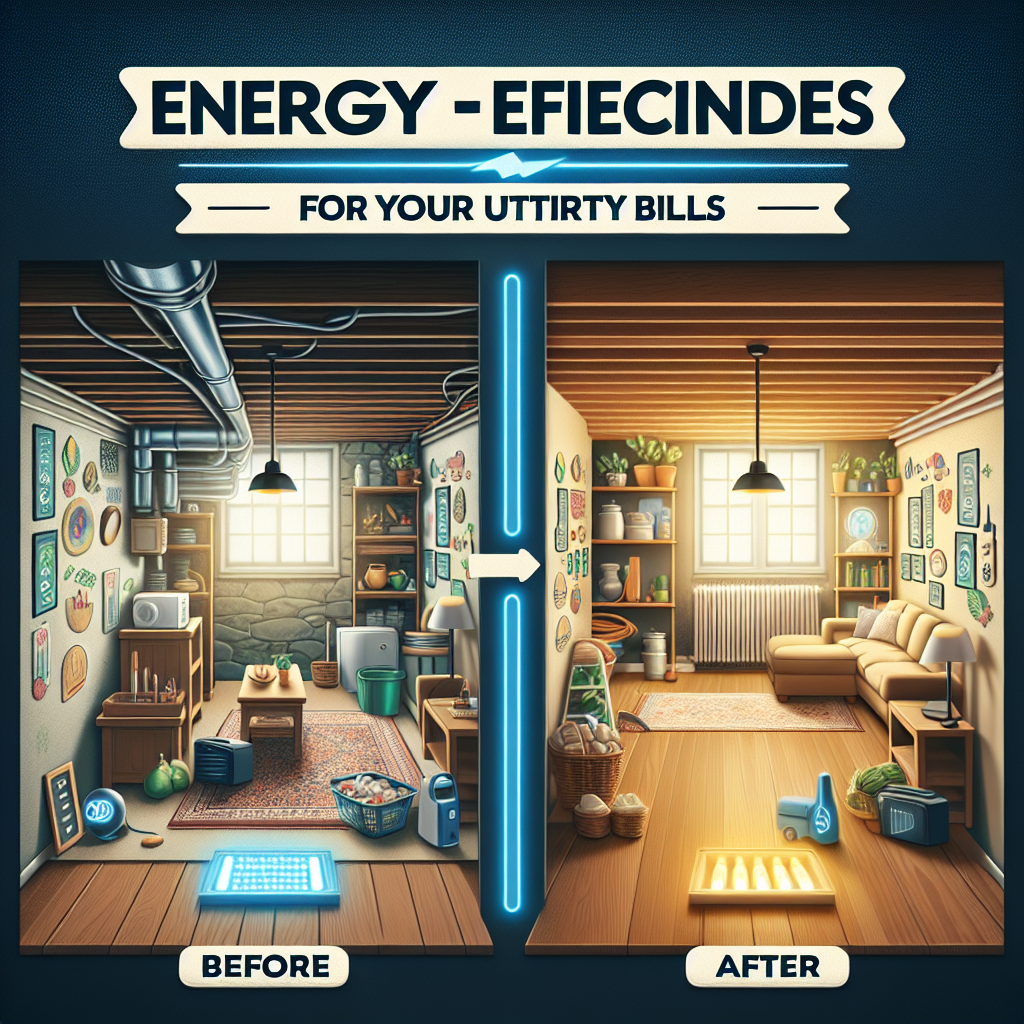Basements often serve as underutilized spaces in our homes, but they can also contribute significantly to our energy bills if not properly upgraded. If you’re looking to lower your utility costs while enhancing the comfort of your home, implementing energy-efficient upgrades in your basement can be a game changer. In this article, we’ll explore various strategies to make your basement more efficient, ultimately saving you money and boosting your home’s overall sustainability.
Understanding the Importance of Energy Efficiency
Before diving into specific upgrades, it’s essential to understand why energy efficiency matters. Not only does it help reduce your monthly utility bills, but it also contributes to lessening your carbon footprint. Energy-efficient upgrades increase the longevity of your home systems, such as heating and cooling, while providing a more comfortable living environment—especially in a space like the basement that can often feel damp or chilly.
Insulation: The First Line of Defense
Insulation is one of the most effective ways to keep your basement energy-efficient. A well-insulated basement will maintain a stable temperature, reducing the need for extra heating or cooling.
Types of Insulation for Basements
-
Foam Board Insulation: This rigid insulation board is excellent for basement walls. It provides a high R-value per inch of thickness, keeping your basement cozy during the winter and cooler during the summer.
-
Spray Foam Insulation: While slightly more costly, spray foam provides superior insulation and air sealing that can help prevent drafts and moisture issues.
- Fiberglass Batt Insulation: Although less effective than foam options, fiberglass batt is a budget-friendly choice for unfinished basements.
Tips for Installation
- Apply insulation to walls and ceilings, especially if the basement is habitable.
- Seal gaps and cracks with caulk before insulating to eliminate air leaks.
Upgrade Your Windows
Basement windows often go unnoticed, but they greatly impact your home’s energy efficiency. If your windows are drafty or single-pane, consider upgrading to double-pane or energy-efficient options.
Benefits of Energy-Efficient Windows
- Lower Heating Costs: Double-pane and energy-efficient windows offer excellent insulative properties, keeping warm air inside during the winter months.
- UV Protection: Energy-efficient windows block harmful UV rays, protecting your furniture and flooring from fading.
Window Treatments
Adding thick curtains or insulating blinds can enhance the performance of your windows, providing an extra layer of protection.
Invest in Energy-Efficient Lighting
Basements often lack natural light, leading to the reliance on artificial lighting. Investing in energy-efficient lighting solutions can significantly reduce energy consumption.
Options to Consider
-
LED Bulbs: These bulbs consume up to 75% less energy than traditional incandescent bulbs and last much longer, saving both energy and replacement costs.
-
Task Lighting: Consider installing LED task lamps for specific areas that require additional light, allowing you to illuminate only the spaces you’re using.
- Motion Sensors: Installing motion sensors can help cut down on unnecessary energy use by ensuring that lights only turn on when people are present.
Install a Programmable Thermostat
A programmable thermostat allows you to set specific temperature schedules in your basement, optimizing heating/cooling based on usage patterns. For instance, you could program it to lower the temperature during the hours the basement is unoccupied and raise it before you arrive home.
Benefits of a Programmable Thermostat
- Energy Savings: Automating temperature adjustments saves you money by preventing over-heating or cooling.
- Increased Comfort: Maintain a pleasantly consistent temperature that meets your comfort needs without breaking the bank.
Waterproofing and Humidity Control
Moisture problems can inadvertently increase energy bills by forcing HVAC systems to work harder. Taking steps to waterproof your basement and control humidity will not only save energy but also protect your home from damage.
Strategies for Waterproofing
- Seal Cracks: Fill any cracks in walls or floors with hydraulic cement.
- Install a Sump Pump: A sump pump can help control groundwater and prevent flooding.
- Consider Dehumidifiers: An energy-efficient dehumidifier can reduce humidity levels, making your basement more comfortable and less reliant on heating or cooling.
Conclusion: Take Charge of Your Energy Costs
Energy-efficient upgrades for your basement not only contribute to significant savings on utility bills but also enhance your home’s comfort and sustainability. From insulation to windows and modern lighting solutions, the upgrades you implement can lead to a more enjoyable living space while benefitting the environment.
Taking the plunge into these renovations may seem daunting at first, but the long-term rewards are plentiful. Begin by prioritizing upgrades based on your budget and needs—one small step at a time can make a substantial difference in your basement’s energy use and comfort level.
By committing to energy efficiency in your basement, you’re investing not just in your property but also in a more sustainable future. So why wait? Start your energy-efficient journey today!


